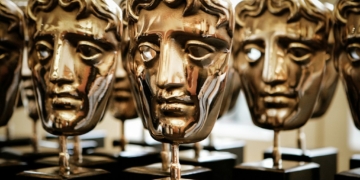I used to be a techno-optimist. I thought a fresh wave of automation could liberate us from monotonous or arduous work. Online retail warehouses seemed a perfect example. Here was an expanding sector where low-paid “pickers” had to walk up to 15 miles a day to collect customer orders from shelves, directed and monitored by wristbands or headsets. I had interviewed warehouse workers who would smear their blistered feet in Vaseline to get through the day. The sooner we invented robots to perform these robot-like jobs, I figured, the sooner humans would be free to do something less grim. But now the robots have arrived, I realise I was wrong.
The surge in demand for online shopping caused by the pandemic has accelerated warehouse automation. Research group Statista predicts the global warehouse automation market will increase from $15bn in 2019 to $30bn by 2026. But robots aren’t replacing the picker job entirely, because human fingers remain better than machines at handling varied objects. “I struggle to find the robot that will be able to handle a bag of plaster of Paris, a bit for a jackhammer, a galvanised steel garbage can, a saw blade, and a 5-gallon bucket of paint,” one warehouse manager explained to researchers at University of California, Berkeley. Instead, many warehouse jobs are becoming part-human, part-robot. This is transforming the work, not necessarily for the better.
Chuck is an autonomous robot trolley which leads a human picker through a warehouse from one shelf to the next. 6 River Systems, which sells or rents the robots to warehouse operators such as DHL, XPO Logistics and Office Depot, says the technology relieves strain on workers because they no longer have to push a trolley around. But Chuck also sets a relentless pace. “Research shows that when associates pace themselves they slow down,” its website explains. A 6 River Systems “business case” report says workers who set their own pace “travel only half as fast as when they follow Chuck [and] their speed without Chuck also fluctuates wildly.”
Amazon, which bought robotics company Kiva for $775m in 2012, is more ingenious. In its automated warehouses, robots bring the shelves to the pickers, who stand stationary instead of walking all day. That means no more blisters or wasted time between picks. The average worker picks roughly 100 items per hour if walking around, but more than 300 items an hour in the automated system, according to news reports.
But while the job has improved in some ways, it has worsened in others. Standing all day is hard on the body, as is reaching, twisting, bending and pulling without being able to set your own pace. An investigation last year by the Center for Investigative Reporting found that, for each of the past four years, injury rates have been significantly higher at Amazon’s robotic warehouses than its traditional ones. The New York Committee for Occupational Safety and Health, an organisation of workers, unions and health and safety professionals, surveyed 145 workers at an automated Amazon warehouse on Staten Island. Two-thirds experienced physical pain while working (especially in their feet, knees, backs, ankles, shoulders and hands) and 42 per cent continued to be in pain when not at work.
These roles may be automated eventually too, but that technology is at least a decade away, according to most experts. In the meantime, humans are being crunched into a robot system working at a robot pace. This brings clear benefits to companies and their customers, who get their deliveries quickly and cheaply. But there are costs to workers and society. Musculoskeletal disorders, for example, are a major cause of disability and illness later in life, which adds to the taxpayer bill for benefits and healthcare.
According to the OECD, 14 per cent of jobs in rich countries are highly automatable, while a further 32 per cent are likely to change because many, but not all, the job’s tasks can be automated. Much academic and media attention has been paid to the jobs that might disappear. What’s happening inside warehouses is a reminder to worry about how the remaining jobs will be transformed.
Dehumanisation and intensification of work is not inevitable. But a different outcome will require different choices and a different distribution of power in the workplace. If we are to have robot colleagues, we need to design processes around the strengths and frailties of the humans, with ways for them to voice problems, propose solutions, and claim a share of the productivity gains.
In other words, we must make sure the robots work for us, and not the other way around.
sarah.oconnor@ft.com










:quality(70)/cloudfront-eu-central-1.images.arcpublishing.com/irishtimes/CGYPT6WE7VAO3KJ773SHUVMVBY.jpg?resize=1200,630&ssl=1)



